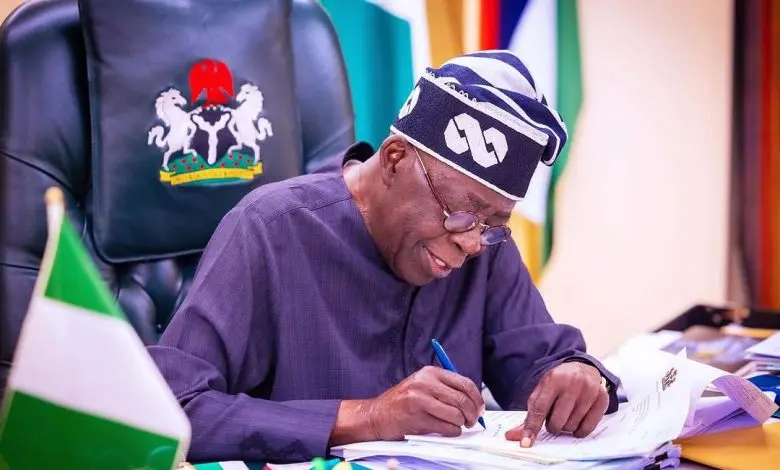
The Federal Government of Nigeria has raised a significant sum of ₦11 trillion through auctions and sales of Treasury bills (T-bills) and bonds between January and April 2024, as reported by The PUNCH.
This amount includes ₦3.1 trillion raised from Federal Government of Nigeria (FGN) bonds and ₦7.92 trillion from T-bills during the four-month period, totaling ₦11.2 trillion.
T-bills and FGN bonds are important tools for the government’s debt management strategy. They offer investors a relatively safe investment option, help in managing the country’s debt profile, and facilitate efficient fund management.
In January 2024, the government raised around ₦418.197 billion from four bond auctions, followed by ₦1.49 trillion from two FGN bond offers in February, although slightly below the target of ₦2.5 trillion.
The Debt Management Office (DMO) recorded another successful bond auction in March, raising approximately ₦475.67 billion, taking advantage of rising interest rates. This was followed by a substantial ₦626.8 billion raised in April 2024 through FGN bond auctions, showing strong market confidence in the government’s credit.
Meanwhile, T-bills saw significant investor interest, with subscriptions exceeding the offering amount. For instance, in January, investors subscribed ₦2.3 trillion for T-bills worth ₦1 trillion. Similarly, the March 2024 T-bill auctions amounted to ₦2.69 trillion, indicating robust demand for government securities.
These funds are crucial for financing the 2024 budget deficit of ₦9.18 trillion and addressing outstanding debts, including Ways and Means Advances. Minister of Finance, Wale Edun, revealed that ₦4.83 trillion from Treasury Bills and Bonds issued in 2024 will be used to settle Ways and Means Advances owed to the Central Bank of Nigeria (CBN).
Professor Sheriffdeen Tella, an Economics expert, emphasized the importance of bonds and T-bills in raising funds domestically and reducing reliance on foreign debt. He highlighted their role in both funding government activities and managing liquidity in the financial system.
“Bonds and treasury bills are instruments of borrowing by the government because when the government floats its bond, people, organisations and investors buy into it and that reduces the money supply. So, bonds and treasury bills play two roles: The role of raising funds for the government and the role of mopping up liquidity in the system,” he said.
“Nigerians can earn more via the interest rate paid on these instruments. The bonds can be paid after a minimum of two years while treasury bills can be three months, that is 91 days, six months and a maximum of one year and that is a shorter option. The CBN normally uses that to raise short-term funds for the government and to mop liquidity to reduce money supply,” he added.
Although the government has raised a substantial amount via these means, experts suggest that Nigerians could raise more funds through increased promotion of financial literacy.
The Director of Research and Strategy at Chapel Hill Denham, Tajudeen Ibrahim, said many Nigerians were not taking advantage of treasury bills and bonds as an investment opportunity due to low financial knowledge.
While speaking in a telephone conversation, Ibrahim said the government could increase funding by focusing on improving public awareness of financial literacy and investment opportunities.
He said, “Let me start by saying that Nigeria is one country where financial literacy is still low. So in a country where financial literacy is low, you should not be surprised that many Nigerians are not taking advantage of treasury bills and bonds as an investment opportunity. So, it is true that many Nigerians don’t and there is no way you can know how to do it if you are not financially knowledgeable.
“Secondly, the supervising authorities like the CBN and the DMO of these securities have always tried to educate the public by advertising or creating a notice on the T-bills to be issued and interested investors should bid. But it is difficult for someone to identify them if they are not financially knowledgeable and that is the problem. How many Nigerians are aware of the FGN saving bonds? Nigerians do invest but the reality is that Nigerians who are not aware of it are a lot more than those who are aware of it and invest in it.”
He added, “Every month, the government comes to the market to raise these funds. Portfolio managers, banks, insurance companies and other corporate investors are savvy about these things. They follow it and get updates. They ask about it. So it is not a problem of institutions but a problem of individuals and financial illiteracy and that has to improve over time.”
Explaining the registration process, the economist explained that interested individuals could open an investment account with their preferred portfolio investors, financial institutions, or insurance companies, and then provide instructions for investment in profitable bonds based on observed data and analysis.
“Interested Nigerians have to go through their financial advisers, they can go through investment management businesses. When they open an account with such investment businesses, they will deposit money in their investment account and then they can give their assets management company instruction to invest in treasury or saving bond bills for them and other investment securities that are available to which they are eligible to invest.
“Our company is one of such management organisations that can handle it. They will onboard them as customers and then begin to invest in them. They will also offer investment advice to them. Nigerians are of different ages and your age determines your risk appetite so we expect older citizens to have a low-risk appetite and younger ones to have a high-risk appetite. Investing in bonds and treasury bills is a lot more beneficial than keeping their money in a savings account and is highly more rewarding.”






Be First to Comment